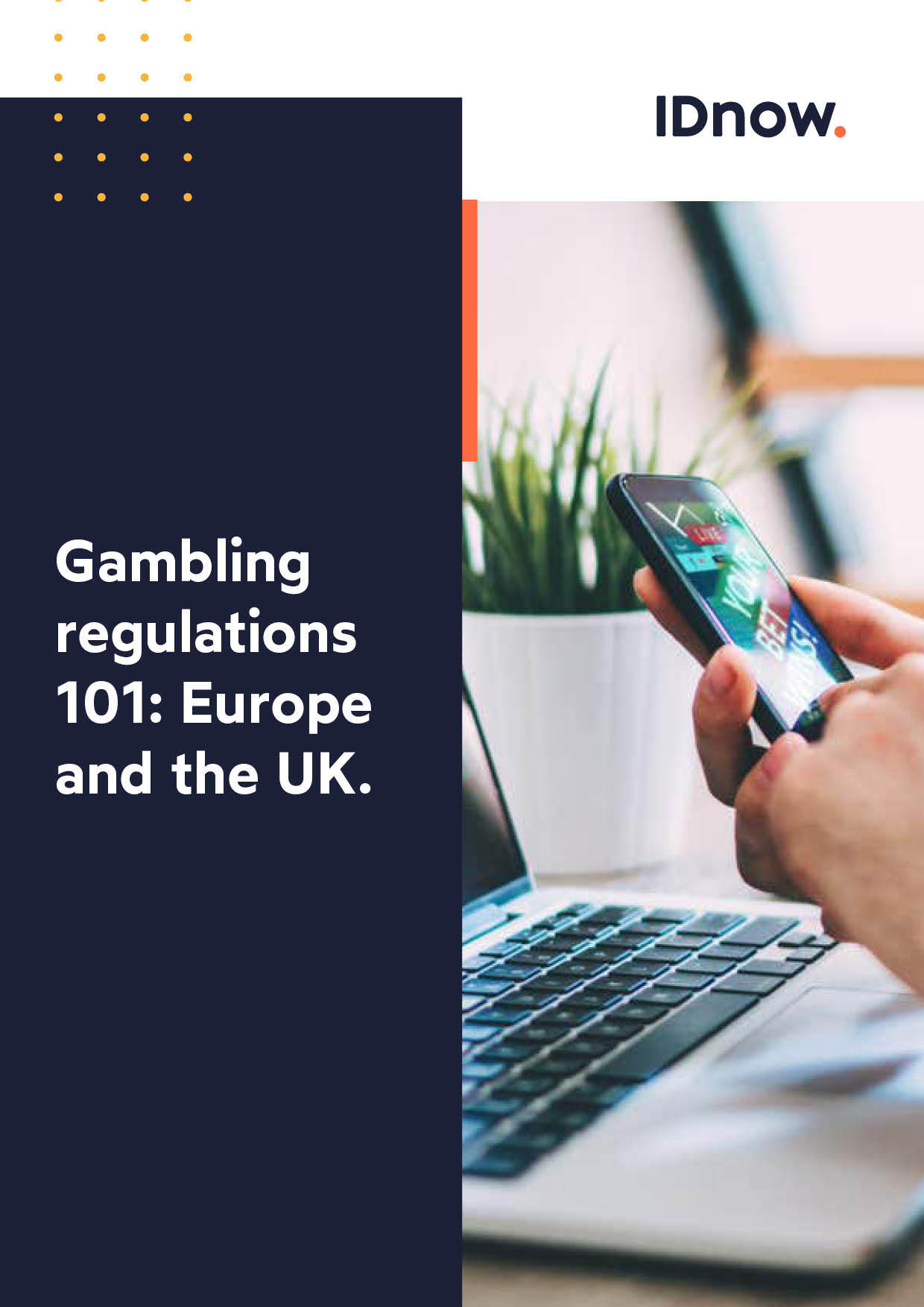In an industry rife with grooming, racism and even money laundering, isn’t it time the video games industry fixed its KYG (Know Your Gamer) problem?
It’s safe to say that many of us have played at least one video game in their life. Today, over 3 billion people in the world play video games in their spare time, whether that’s on a console, a computer, or a smartphone. Little wonder then that the market is estimated to be worth approximately $300 billion.
The industry has changed considerably since Pong (a table tennis-themed video game released by Atari) launched in 1972. Long gone are the days of gamers queuing up outside video games shops to get their favorite release. Now, 83% of video games sales are made online.
There’s also been a huge rise in online gaming, thanks in part to the introduction of lightning-fast internet speeds and other technological developments that can facilitate battle royales, and other mass group games. Nowadays, huge communities of gamers can be found in gaming companies’ online multiplayer gaming and digital media delivery services, such as Xbox Live, PlayStation Network (PSN), Steam or Ubisoft Connect. According to a study from Accenture, 84% of gamers believe video games allow them to meet people who share common interests. In an increasingly insular world, the social aspect of video games has never been more important.
Community-centric experiences.
Although video games offer the gamer exciting and rewarding adventures, and the opportunity to meet people from around the world, the industry has never been far from controversy. Much like horror films in the 80s, video games are often used as the scapegoat for real life violent events. They are also criticized for their addictive nature, with children racking up thousands of dollars in microtransactions, and with increasing incidents of online grooming, harassment and racism, certain online gaming platforms have been accused of being toxic cesspools, and certainly no place for children to be spending their spare time.
As such, online gaming platforms are feeling a growing pressure from their communities to provide a safe and respectful environment. If they don’t, there can be serious repercussions for revenue and reputation, and for the gaming experience and community at large. For example, the notorious French gamer Yannox was fined €2,600 in January 2020 after creating a toxic environment for the Rainbow Six (tactical First Person Shooter) community. The gamer was found to have cheated regularly, and was banned 80 times by developer Ubisoft, which of course affected other players’ gaming experiences. It was also alleged that Yannox caused the swatting (phoning a false emergency to cause disruption) of Ubisoft offices in November 2020, after getting banned.
Unfortunately, such misconduct is not an isolated incident. In fact, the bigger the online community, the more toxic behavior. Perhaps emboldened by the anonymity that online gaming platforms provide, misbehavior like bullying or verbal abuse is now an almost inescapable part of the gaming community.
In its third annual report, conducted in 2021, the Anti-Defamation League surveyed a representative sample of US players regarding the prevalence of toxic behavior. It found that 71% of adult online gamers experienced severe abuse, including physical threats, stalking, and sustained harassment, while 60% of responders aged 13-17 experienced harassment in online multiplayer games. On top of that, 42% of women and 41% of African Americans reported to have been harassed because of their gender or race.
But how can video game companies provide a safe environment for their players, free from verbal abuse, harassment, or cheating?
The actions currently taken by gaming platforms like banning or freezing accounts do not seem to act as a big-enough deterrent. Players can simply just create a new account and rejoin the community and continue to engage in misconduct. How? Well, one of the main reasons is because there are currently either very limited, or no identity verification checks when registering for online gaming.
Why KYC in video games should be a priority.
While KYC requirements have been in place for online gambling for several years, the video games industry has enjoyed a comparatively hands-off regulatory oversight. However, with increasing pressure from campaigners, the general public, and the gaming communities, gaming platforms now face a conundrum: Should they implement rigorous customer onboarding to verify players’ identities, and run the risk of losing customers who don’t want to prove who they are? The more pressing question, however, should be: with the potential impact to reputation, business disruption, and a negative experience for gamers, can they really afford not to?
In the future, is it foreseeable that regulators could turn their attention to gaming platforms, making it a requirement to verify the identities of all players? This level of accountability would not only act as a deterrent from gamers engaging in nefarious activities, but it would also, of course, prevent underage gamers from playing certain games, or purchasing microtransactions online. Such restrictions could be based on PEGI standards. KYC checks could also be used to prevent anti money laundering.
Not all fun and games.
A recent study from the Radicalization Awareness Network from the European Commission highlighted that Steam and PSN (among others) could be considered “hotbeds for radicalization”. Indeed, as it has become increasingly difficult to launder money through financial services providers, criminal organizations have begun to look out for new avenues, like holiday home rental scams, for illicit activities.
Combine the rise in popularity of microtransactions, with the potential for money laundering, and you have a deadly cocktail that may very well push authorities to start asking for KYC requirements in the industry in the very near future.
With criminal organizations constantly on the lookout for new streams of revenue, payment systems in video games have become a target of choice. The use of convertible and non-convertible virtual currencies for in-game purchases, in particular, has proved to be an efficient way to launder money, as identity verification is yet to be enforced.
A report from Sixgill highlighted how Fortnite is often used for carding (a form of credit card fraud, in which a stolen credit card is used to charge prepaid cards or purchase gift cards) and as a haven for money-laundering. Bad actors will use illicitly gained funds to purchase in-game currency, then use the virtual currency to buy in-game goods. Finally, they will sell the goods in exchange for “clean” money.
In 2019, Valve reported that “nearly all” microtransactions in Counter Strike: Global Offensive were being used for money laundering, and was forced to stop specific trading between accounts. Perhaps the question should therefore be not if regulators will consider KYC requirements for the video games industry, but rather when.
Painful account opening processes.
From a gamer’s perspective, registering and opening accounts is often seen as a pain point that gets in the way of the fun, but automated identity verification solutions can be integrated seamlessly into a player’s onboarding journey without impacting on the gaming experience. From the business side, not only does KYC help gaming companies gain a better understanding of their players, but it also enables them to weed out the toxic gamers wreaking havoc on their communities. Having these processes in place now will enable video game companies to stay ahead of the pack if AML regulations were ever introduced in the future.
KYC should be considered the next step in building better and safer online gaming communities. Gaming accounts that have been correctly vetted and verified will allow for easier and more accurate identification of bad actors, and eliminate verbal abuse, cheating, bullying, and fraud. It can also help players retrieve their account after a takeover, as they will be able to easily verify their identity and prove they are the rightful owner.
Although digital identity verification solutions are typically adopted by banking and financial services as regulated entities, such technology and processes have a wide application of use cases in different industries, including gaming companies. Transparent, efficient and painless for the user, our automated identity proofing solutions for the gaming industry can be integrated easily into a mobile app through SDK, a web flow or directly through the IDnow AutoIdent application.
By

Jody Houton
Content Manager at IDnow
Connect with Jody on LinkedIn
Online gambling regulations – Europe.




